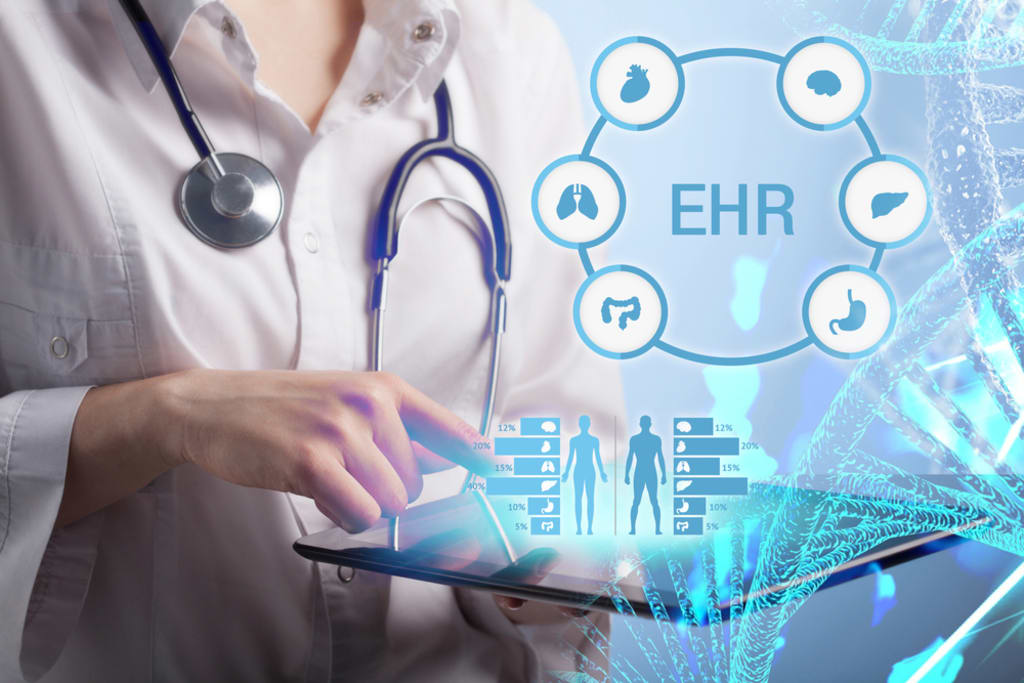How to Integrate EHR in Medical Billing Solutions?
Medical practices are looking to increase operational and financial efficiency in the face of an unrelenting pandemic.

One way they can do this is by integrating electronic health records (EHR) into their billing process, which will allow them accurate tracking data for reporting purposes as well as increased accuracy when it comes down to making sure that nothing gets missed during treatment sessions or office visits due simply because there was no contact made by either party involved about any allergies etcetera beforehand.
Medical billing services are becoming increasingly sophisticated and the industry is changing to meet these needs. For example, integrated medical billings can help streamline processes for electronic processing of tasks like managing claims or revenue generation by integrating all aspects of your practice into one system that will be easier than ever before with accurate coding capabilities across every platform you use.
A great benefit to healthcare organizations who invest in EHR implementation? You're already ahead when other facilities opt-out as they struggle under load times because we automatize much more than just paperwork - it cuts down on hours spent searching through paper files at lightning speed while keeping records up-to-date wherever they happen
Integrated EHR and Medical Billing Software
Healthcare organizations must consider the benefits and drawbacks of different EHR solutions when choosing an integrated medical billing system. The right choice for your organization will depend on a number of factors, including how well it integrates with other software in use at the clinic or hospital--known as "interoperability." You also need to assess technical challenges that come along during implementation time such as compatibility issues between hardware devices used by providers (such as electronic pumps) and various systems within one network environment etc. Finally remember not all these problems can be solved simply by purchasing new equipment; sometimes redesigning old.
Operational Considerations:
When considering the advantages of EMR for Small Practices, it is important for a medical billing service to have all of its capabilities integrated with an automated patient record and workflow. In order to do this effectively, an integrated solution must be used that includes both electronic health records (EHR) as well as information about diagnosed conditions or treatments received at your practice so you can properly track their progress over time while also appropriately assigning each individual's insurance coverage galaxy based off those particular facts from their visit history if applicable.
This means having access not just to what was ordered but when/how often these things come back plus any other notes written during treatment sessions.
It is important to customize EHR systems in order for them to be more user-friendly. Billing-friendly integrations can mitigate several technical challenges while implementing robust medical billing solutions, which means that you'll spend less time configuring and managing your system.
Data Migration:
Implementing electronic health records is a challenging process, but it's worth the hassle for many reasons. For example, data migration and integration services can help with medical billing during this time as well! Some challenges include older systems that may not be compatible or accessible due to paper-based practices in place before EHRs were introduced onsite and lack of accessibility when patients don't provide their full history which impacts operability because there could potentially still be another issue without knowing about them beforehand so you'll want to take care ahead whether using coding solutions if looking into having all your information shared seamlessly between various software packages.
The transition from paper to electronic medical records is an important step in improving patient care and reducing costs. Subsequently, it's helpful if your billing system can access their history information so they are able to provide holistic services for you as well! A hospital management software with integrated EMR tools will allow this data integration which helps achieve insurance-related objectives while also making sure all new claims come along smoothly without errors or confusion on behalf of anyone involved - especially those who have just begun working here at our company recently thanks again.
Employee Training and Orientation:
The successful integration of healthcare organizations' electronic health records (EHR) is a complicated process that requires the involvement and training from all entities within an organization - administrators, staff members including doctors and patients. To ensure accurate usage in this type or environment it's important for there be clear guidelines about how things should work together as well detailed educational programs offered specifically focused on integrating medical billing where every party involved has been educated equally so they can make informed decisions when interacting with their assigned system providers.
Switching to an EHR is a one-time transition, but it requires the entire healthcare organization to be proficient for smooth operations. Billing and coding training should also take place interdepartmental so that every provider in your practice has up-to-date knowledge on how best to use their own system with billing codes or other tools as necessary when facing new patients coming from outside sources who require different types of treatment than those usually seen.
Compliance:
The goal of an EHR system is to improve patient care and reduce costs. But just because it has a pretty interface doesn't mean you should use one without examining its compliance capabilities first, as this could result in costly fines or other penalties for violating regulations like Healthcare Information Portability Accountability Act (HIPAA).
Conclusion:
The next step after transitioning to electronic medical records is billing. With innovative integrated management solutions, switching from paper-based systems has never been easier! As healthcare organizations make this transition and integrate their data into one system (which will soon become mandatory), it's important that you consider EHR Billing as well for overall efficiency in operations.
The benefits of EMR in medical billing are multiple and can help to improve your organization's alignment across the board. Paperwork will become a thing from yesteryear, as all records are now stored electronically with integrated software as opposed to paper-based systems which have been at least partially replaced by digital files or other methods over time anyway.






Comments
There are no comments for this story
Be the first to respond and start the conversation.